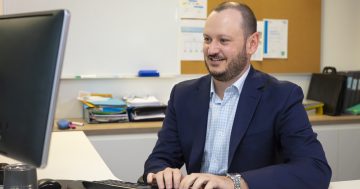Jason Andriessen* says despite being amongst the best in the world Australia’s superannuation industry needs to change tactics.
 Australia’s retirement savings system is undisputedly world-class, but it is facing some macro-economic risks that are threatening its sustainability.
Australia’s retirement savings system is undisputedly world-class, but it is facing some macro-economic risks that are threatening its sustainability.
Most of these risks stem from COVID-19 and are global, impacting all OECD countries’ retirement security to varying degrees.
However, there is one risk that is unique to the Australian retirement system: the emerging advice gap.
This is the growing difference between the demand for advice and its supply.
Super funds have a unique opportunity to be a part of the solution, but only if they flip their perspective and start to think like a member.
Fighting the rising odds
COVID-19 has caused several macro-economic risks to long-term global retirement security.
Global recession and rising unemployment mean that contributions to retirement plans will be dramatically reduced; a problem exacerbated in Australia by the Early Release Scheme.
Interest rates have been at historic lows for more than a decade, but the global shutdown has forced even more cuts.
Retirees need to be increasingly resourceful about how they manage their income needs, which may necessitate them moving up the risk curve.
And the mounting public debt from short-term stimulus packages will present long-term challenges for policy makers seeking sustainable retirement systems.
But there’s another risk to retirement security that is unique to Australia and has been brewing since the start of the Hayne royal commission.
The financial advice industry is in chaos.
The costs to deliver advice post Royal Commission have increased markedly, all at a time when client service expectations are increasing, and revenue streams are disappearing.
With adverse changes to the economics of advice, and with higher education and professional standards bearing down, financial advisers are fleeing the industry and not being replaced.
According to ASIC’s Financial Adviser Register, active adviser numbers have fallen 25 per cent from 31 December 2018 to end September 2020.
A gap is emerging between the demand for advice and its supply, which is driving down its accessibility and affordability.
That is a systemic risk because financial advice plays an important role in Australia’s retirement system.
Our mandatory super system is dominated by defined contributions schemes.
The schemes require members to make decisions about withdrawal rates, consumption and investment choices.
These are complex decisions, and most Australians require support to make them. That support is often provided by a financial adviser.
Australians who have an active relationship with a financial adviser are better off.
They worry about money less, enjoy better mental health, and have better personal relationships with family and friends.
And they are wealthier. They are able to spend more and do more with less risk along the way.
Need a hero
As the custodians of the retirement nest eggs of Australians, super funds are uniquely positioned to solve the advice gap.
As members, our super fund is the first place we turn to for help when we start thinking about retirement.
But in order to provide scalable decision support to members, super funds need to think differently.
They can do this by looking at things from the standpoint of members.
Super funds are relevant to the extent they factor into trade-off decisions members make.
All through our lives, we trade-off one thing against another: we forgo holidays so we can upgrade the car; or we choose to send our children to private school.
As we get older, our retirement and therefore our super balance starts to enter the trade-off equation.
We start to question how much we should have for retirement, whether we should salary sacrifice or make top-up contributions.
It’s at this point super becomes relevant in the lives of members and they welcome engagement from their super fund. But it needs to be on their terms.
It’s gotta be soon
Members aren’t looking for education and they’re certainly not looking for holistic financial planning advice in the sense of a traditional six-step financial planning process.
They are looking to solve practical and immediate problems like, “How much can I afford to spend now?” and “How much do I need to contribute to super?” They are looking for decision support, not advice, and they’re looking to learn, but not necessarily be educated or taught.
The principles of adult learning, or andragogy, hold the answers to the future of decision-support in a super context.
Adults learn best by doing, co-creating and interacting with others and the subject matter.
They like to immerse themselves in the detail on their own terms, applying their own experiences and learning from peers who have faced the same challenges before them.
The Australian retirement system is world-class, but there are risks to its sustainability.
One of those risks is the reducing supply of financial planning services, which play an essential role in the system.
Super funds have a special platform and opportunity to address the advice gap, but they need to think differently if it’s going to be scalable.
What got us here won’t get us where we need to go.
*Jason Andriessen is a CFP Professional and holds a Bachelor of Business, Master of Commerce (with distinction), and Diploma of Financial Planning.
This article first appeared at inverstmentmagazine.com.au











